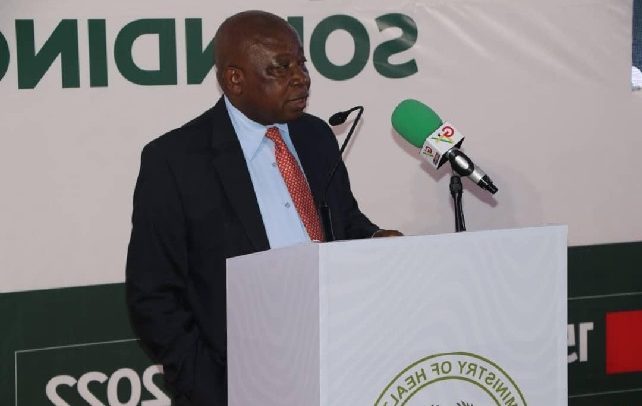Minister of Health, Kwaku Agyeman-Manu speaking at the event
The Ministry of Health (MoH) has held a project market-sounding event to court the support of the private sector for the Clinical Laboratory Improvement Project (CLIP).
The goal of CLIP is to help improve access to quality and affordable diagnostics services in healthcare facilities across the country.
Minister of Health, Kwaku Agyeman-Manu speaking at the event said CLIP is expected to enhance the laboratory capacity of the existing regional hospitals and enable them to offer a broader range of diagnostic services.
“This will curtail the agony patients go through by travelling across regions for some specific diagnostic services”, he stated.
He explained that the project would be undertaken first in the regional hospitals or the designated facilities in each region as selected by the Ministry and the Ghana Health Service (GHS).
“Our thinking is that every region should have at least five viable quality health diagnostic centres”, he said.
Mr. Agyeman-Manu said CLIP aligns with the provision of the National Health Policy 2020 and the National Health Laboratory 2030 that aims at increasing geographical access to affordable health services which included laboratory services.
He also emphasised that laboratory diagnostics play a pivotal role in the country’s efforts toward attaining Universal Health Coverage (UHC).
“Efforts and the achievement of Universal Health Coverage will fail if there are weaknesses in the laboratory services”, he stated.
He acknowledged the important role strategic partnerships with the private sector could play in the efforts to expand health services.
Chief Economics Officer, Ministry of Finance, Stella Dede William, said the market event is to engage the private stakeholders to obtain feedback on the feasibility of the proposed clinical laboratory improvement project.
She stated that as part of the Public, Private Partnership (PPP) process, market sounding is required before the procurement processes can be initiated.
“This is to ensure a comprehensive stakeholder engagement to promote the project to prospective heddles and financier and to get input from other relevant stakeholders, in line with section 38 2a of public-private partnership act”, she said.
She, however, said the project is expected to cover rehabilitation, co-management, and cooperation of selected laboratories in all sixteen regions of Ghana.
“Government is pursuing a reviewed focus on leveraging the private sector to improve service delivery in general”, she added.
By Jamila Akweley Okertchiri & Hudda Bala Abdul Manan

